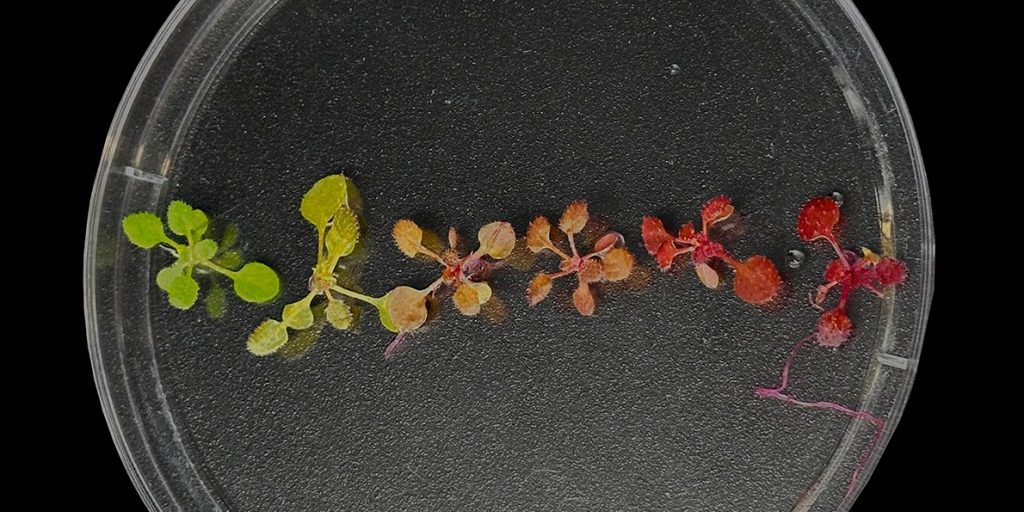The ability to genetically engineer plants is largely thanks to a microscopic helper: a bacterium called Agrobacterium tumefaciens. Agrobacterium in the wild causes damaging tumors in flowering plants, including some economically important crops, but its ability to insert its own DNA into host plants is what makes it both a pest to farmers and a powerful tool for biotechnology.
New research by a team that includes scientists from Lawrence Berkeley National Laboratory (Berkeley Lab) shows that some simple changes to Agrobacterium can significantly improve the efficiency of introducing DNA into a genome, also known as “transformation.” The work opens up new opportunities to more efficiently optimize crop plants and fungi for conversion into biofuels and bioproducts.


